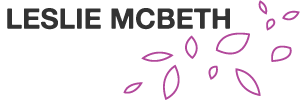 Today was the first official day of classes at school after a thoroughly exhausting and simultaneously energizing hiking trip in BC as part of our Outdoor Education program, an experience designed with Outward Bound to develop perseverance and self confidence in our students. I hiked and camped in the backcountry along side 11 students, completing 47 grueling kilometers over 6 days along the Pacific coast.
Today was the first official day of classes at school after a thoroughly exhausting and simultaneously energizing hiking trip in BC as part of our Outdoor Education program, an experience designed with Outward Bound to develop perseverance and self confidence in our students. I hiked and camped in the backcountry along side 11 students, completing 47 grueling kilometers over 6 days along the Pacific coast.
Along the same lines of a tough physical experience, I have spent most of the summer undertaking a massive home renovation. It’s been a long, heavy, dirty haul. My husband and I bought a 130 year old home in May and since then we have pulled more than 9 tonnes of plaster, lathe, flooring, electrical, plumbing, fixtures and dirt out of the house. We demolished the entire house, learned to do electrical, plumbing, and drywall, and now are *hopefully* turning to corner in putting it back together. I’ll be heading home tonight to sand the floors and after weeks of sleeping in a tent in the backyard, hopefully we’ll actually have a bathroom and a kitchen again sometime before winter.
With this hiking experience in mind (and with sandpaper on the brain), I started my “GLS4O-Transitions: Postsecondary Planning, Strategies and Skills for Success” course today by teaching my students about a buzzword in education: grit. According to research by Angela Lee Duckworth, grit, or the combination of passion and perseverance, is one of the single biggest factors in success, across disciplines, ages and career paths. Her research dovetails with the work of Carol Dweck, whose research in educational psychology around growth mindset is seen as the backbone of many pedagogical strategies today.
I’m a firm believer in the work of both Dweck and Duckworth, based on my own life experience and from what I have seen in my classroom. The question remains, how do we develop grit in students? Last year, Garth and some other colleagues did some work around this, which I used as the basis of my lesson today (oh, and there’s an app for that). But, I think that there is still much to explore around this topic, especially as it relates to success in the 21st century. This is one of the reasons why I am excited about Cohort 21 this year: to have the opportunity to meet colleagues from across Ontario (and beyond!) andlearn how you are integrating these 21st century skills in your classrooms.
Duckworth’s work, along with that of Gabrielle Oettingen’s research on “Mental Contrasting with Implementation Intentions” suggest that one way to improve grit is by setting goals, visualizing our success and sharing our progress. Cohort 21’s action plans are one way to do just that.
In addition, Cohort 21 is a fantastic opportunity for us, as teachers, to develop our own growth mindsets and grittiness. As technology changes in at a rapid pace, so does our teaching practice. Without a growth mindset, it can be challenging to keep up to the pace of our students as they adopt new technologies. We need to be open to trying new things, believing in our ability to learn from our failures.
While we all may not immediately embrace technology, we should all be having open discussions around best practices for integrating it into our classrooms. Asking questions like “what does effective use of technology look like?” or “how can technology transform the way my students learn?” are ongoing discussion points that change with the times. Cohort 21 provides the opportunity for us to explore these ideas together, while also helping each other test out new technology in a safe environment.
I often tout to my students that “teaching is the best way to learn.” Perhaps in this case, with rapidly changing technology that requires patience and practice to implement effectively, learning is the best way to teach. In my mind, Cohort 21 is the best opportunity to do both. And, it’s a great excuse to skip out on a day of sanding floors at the house.


Much of our work as educators focuses on student-facing initiatives, such as fostering a growth mindset. I love how you’ve flipped this idea, and made a case for PD as a way for teachers to foster GMset in themselves.
For some great initiatives and resources on this, other than Cohort 21 that is, check out MINDWORKS: http://blogs.edweek.org/teachers/classroom_qa_with_larry_ferlazzo/2012/10/response_classroom_strategies_to_foster_a_growth_mindset.html
And thanks for “Woop”ing it up!
garth.
Great post Leslie. Well said, and I love the comparison.